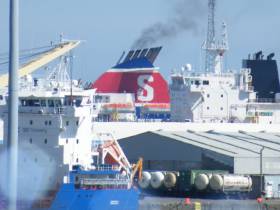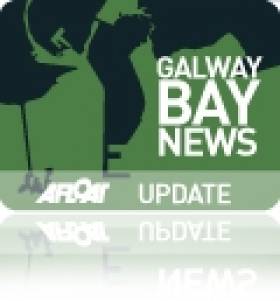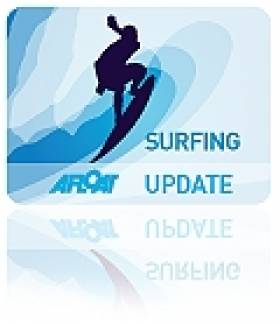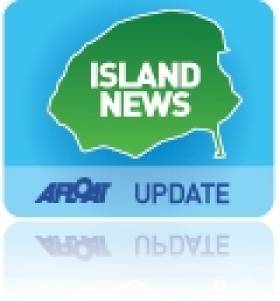Displaying items by tag: Planning Permission
Port of Dublin Seek Planning Permission for €320m Expansion
The Dublin Port Company is seeking planning permission for an estimated €320 million worth of projects that make up the second stage of its main expansion plan.
The State-owned company, writes The Irish Times, is working on a masterplan that will bring it to “its maximum and ultimate capacity” by 2040, according to its chief executive, Eamonn O’Reilly.
The company said on Tuesday that it has asked An Bord Pleanála for permission to go ahead with the second stage of the plan, which involves five key projects scheduled to be finished by 2035.
“If we were building all of it today it would cost us €320 million,” Mr O’Reilly estimated. He cautioned that it would not be possible to give a final figure until Dublin Port knew what conditions could be attached to any planning permission it received and had calculated for both detailed design and construction inflation.
The company’s board recently approved a proposal to allow it borrow an extra €300 million if needed.
The masterplan’s second stage (MP2 Project) provides for a new roll-on roll-off jetty for ferries up to 240m-long, lengthening an existing berth for container ships, redeveloping an oil berth so it can handle container traffic, re-orienting another existing berth and consolidating passenger terminals.
For more including the company's consultation process click this link.
In addition Afloat.ie adds DPC has announced is lodging an application for permission with An Bord Pleanála for its MP2 Project, the second major capital development project from the Port’s Masterplan 2040.
It follows consultation with stakeholders, including the local community, customers, State agencies, Government departments and other public bodies.
Public information days (see below) will be held in local communities over the coming weeks with details of the proposed development plans on view.
Additional Capacity for Future Growth
The MP2 Project is the second of three Strategic Infrastructure Development projects required to deliver the vision of Masterplan 2040. This vision sees Dublin Port reaching its ultimate capacity by 2040 with no additional infill of Dublin Bay. The need now for the MP2 Project arises from both the level of future growth DPC is projecting and the time required to complete the development works (2020 – 2035).
By reconfiguring how existing facilities and lands are currently used, the MP2 Project will create additional capacity for almost one-third of the projected increases in Dublin Port’s Ro-Ro (truck) and Lo-Lo (container) traffic between now and 2040.
When complete, the MP2 Project will also increase Dublin Port’s capacity to handle growing ship sizes by providing up to three longer, deeper river berths capable of taking Ro-Ro ferries and Lo-Lo container ships measuring up to 240m in length.
Port Heritage & Community Gain
The MP2 Project also includes provision for a publicly accessible Heritage Zone at the eastern end of the Port.
This will include a new structure or ‘Marker’ incorporating the original lighthouse bell and lantern from the pier head at the end of the long gone 19th century eastern breakwater. The Marker includes a Viewing and Interpretive Deck, and beneath it a small performance space or amphitheatre. The proposal also features the installation of a Sea Organ, a musical instrument made from a series of pipes with whistle openings installed into the land boundary. The Heritage Zone will be accessible by cyclists and pedestrians along the new 4km greenway on the northern fringe of the port overlooking the Tolka Estuary. Construction of the greenway will commence later this year.
In the event that permission is granted for the MP2 Project, a Community Gain initiative is also proposed as part of the application that would see DPC establish a €1 million trust fund for Dublin City Council to develop a city farm in the vicinity of the Port, intended to enhance the local community and benefit the wider city through educational, volunteering and collaboration opportunities. In addition, DPC would establish a €1 million trust fund for St. Joseph’s Co-Ed Primary School in East Wall, intended to benefit the school community closest to the development site.
Public Consultation
The application for permission, the Environmental Impact Assessment Report and the Natura Impact Statement, will be available to inspect during public opening hours for seven weeks from 19th July 2019 at: -
- The Offices of An Bord Pleanála 64 Marlborough Street, Dublin 1.
- The Offices of Dublin City Council, Civic Offices, Woodquay, Dublin 8.
- The Offices of Dublin Port Company, Port Centre, Dublin Port, Alexandra Road, Dublin 1.
The application may also be viewed / downloaded from the project website: www.dublinportmp2.ie (which at timing of writing is 'coming soon').
Public Information Days will also take place in the following locations, where the MP2 Project Team will be available to discuss the project in person and where the application documents will be on view.
|
CLONTARF |
Scoil Uí Chonaill GAA Club, 95 Clontarf Road |
Tuesday, 23rd July, 2019 |
2-8pm |
|
EAST WALL |
Seán O'Casey Community Centre, St. Mary’s Road |
Wednesday, 24th July, 2019 |
2-8pm |
|
RINGSEND |
Clanna Gael Fontenoy GAA Club, Sean Moore Road |
Thursday, 25th July, 2019 |
2-8pm |
Submissions or observations may be made only to An Bord Pleanála up until 5.30pm on 5th September 2019. See www.pleanala.ie for further details.
Buoyant Derry as Maritime Museum Passage Promises to Float all Boats
#MaritimeMuseum - A decision by the Department of Infrastructure (Dfi) to finally approve plans for a Maritime Museum at Ebrington will hasten the completion of a major tourist draw in the heart of Derry, according to local politicians who have hailed the move.
As The Derry Journal writes, DfI (last week) finally approved planning permission for the Maritime Museum, which is expected to open in Spring 2020. It also gave the green light for new vehicular/pedestrian access off Limavady Road via a new signalised junction.
Both applications are part of the wider ongoing regeneration at Ebrington. Local politicians said the progress was welcome and that the museum would ultimately showcase Derry's unrivalled nautical heritage and attract hundreds of thousands of tourists to the city. SDLP Foyle MLA Mark H. Durkan: “I welcome this planning decision as another piece in the Ebrington jigsaw.
On the back of other recent developments and approvals on the site, it is becoming clear that the huge potential of this key site can be realised. "Before I established a Department of Environment North-West Headquarters there a few years ago, there were no jobs and precious little activity in Ebrington.
Local businesses have now set up there and in the future, with careful planning and adequate investment, the place will be awash with activity. "The Maritime Museum itself has been talked about for a long time. It is fitting that we celebrate the rich maritime history of our City in a way that will enhance our ever –improving tourism product.’"
For more on this story, click the newspaper's report here.
Galway Harbour Co Gets Extra Time for Pre-Expansion Works
#GalwayPort - Galway Bay FM reports that the Galway Harbour Company has been given extra time by city councillors for the demolition of buildings in the docks area to make way for the upcoming port expansion.
Planning permission was granted five years ago for the removal of the Centre Pier building, which had been earmarked at the time as the location for a media centre for last summer's Volvo Ocean Race finale.
Now the Galway Harbour Company has three more years as it seeks further planning permission for the first phase of its expansion plans, as previously reported on Afloat.ie.
Tramore Surf Clubs Plans New Clubhouse and Training Centre
#SURFING - Tramore Surf Lifesaving Club is seeking planning permission for the development of a new clubhouse and national training centre on Tramore's promenade.
The state-of-the-art development would involve the completion of a three-storey ocean-themed building along the seafront, with club changing facilities and a shower area; rescue boat housing; an emergency first aid room; conference room; and a lifeguard area with an observation deck on the third floor.
The building would also incorporate the latest in renewable energy technologies to minimise the club's carbon footprint and tailoring our energy usage to our needs.
It is projected that the new clubhouse would also house Waterford County Council's beach lifeguards during the summer months, which will also allow for co-operation in relation to water safety and lifesaving skills.
Waterford Today has more on the surf club's proposals HERE.
Spanish Point Site Could Be a Dream Investment
A half-acre site in the picturesque environs of Spanish Point, now on the market for €400,000, could prove to be a dream investment.
The site in Ballycotton, Co Cork, which is the former location of the Spanish Point Restaurant and guest accommodation, comes with direct access to the foreshore and has full planning permission for 15 apartments.
Viewing is strictly by appointment only with sole selling agents McCarthy & McGrath Auctioneers of Midleton, Co Cork.
MyHome.ie has more details on the property HERE.
Prices Drop On Private Islands
It's never been easier to own your own private island, with some going for less than €200,000, according to The Irish Times.
Cork-based estate agent Dominic Daly currently has islands on his books in west Cork, Donegal and the Shannon Estuary. But he warns that islands can be difficult to sell, as planning permission for residences is often hard to obtain.
Another agent, Philip O'Reilly in Ennis, says some islands are designated as Special Areas of Conservation, which means even building a landing jetty is out of the question. But on the plus side, owners are now much more open to lower offers.
The Irish Times has more on the story, including details of a number of islands on the market, HERE.



































































